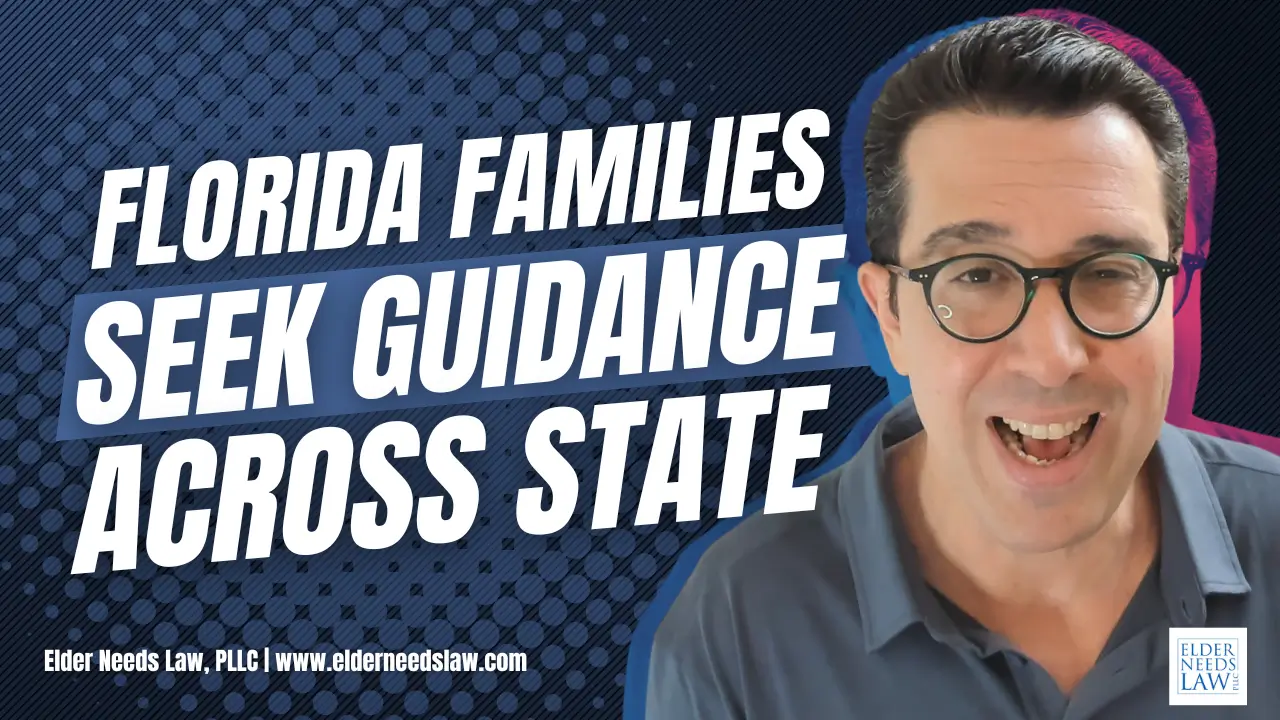Florida Elder Law Updates: What the New Legislation Means for Your Family

Recent legislative changes have many Florida families asking important questions about their future. With new federal legislation making its way through the system, it's natural to wonder how these changes might affect your estate planning and long-term care options. Let's break down what these updates actually mean for Florida residents.
Watch: Understanding the Latest Elder Law Changes
Estate Tax Changes: Who's Really Affected?
The proposed legislation includes an increase to the federal estate tax exemption, raising it to $15 million per individual. This means if you're a single person with assets worth less than $15 million, you won't owe federal estate taxes.
Currently, the exemption sits at approximately $13-14 million per person. The reality? This change affects less than half of one percent of Americans – only the wealthiest families in the country.
For Most Florida Families:
- No material change to your estate planning needs
- Florida has no state estate tax, so this only concerns federal taxes
- The vast majority of families fall well below these thresholds
- Your current estate planning strategies remain just as effective
For High-Net-Worth Families:
- Those with assets exceeding $15 million per person still need strategic estate tax planning
- The increase provides some additional breathing room but doesn't eliminate the need for planning
Medicaid Changes: Separating Fact from Fear
Much of the concern centers around potential changes to Medicaid funding. However, "Medicaid" is actually an umbrella term covering multiple distinct programs:
- Medicaid for the working disabled
- Medicaid for pregnant women
- Medicaid for minor children
- Medicaid for those aging out of foster care
- Medicaid for disabled and older adults needing long-term care
The Programs That Matter Most to Seniors
For older adults and their families, the most relevant programs are:
Medicaid Waiver Program: Helps pay for home care or assisted living facility care ICP (Institutional Care Program): Assists with nursing facility costs PACE Program: Provides adult day care model services
The Good News: These programs serving elderly and disabled populations don't face direct threats under the current proposed legislation.
What Changes Are Coming?
While the core programs remain protected, some administrative changes are expected:
Work Requirements: New requirements may be implemented, though these primarily affect other Medicaid programs Renewal Frequency: You may need to renew your Medicaid benefits more often during the year Expanded State Impact: States that expanded Medicaid will feel more significant effects (Florida never expanded Medicaid)
The Indirect Concerns
There's one area that could create downstream effects: provider taxes. The legislation may reduce taxes that Medicaid providers (doctors, facilities, service providers) pay into the system.
Here's why this matters: Federal Medicaid funding operates on a matching system – the federal government only matches what states contribute. If provider taxes decrease, state contributions drop, which means federal matching funds also decrease.
Potential Timeline and Impact:
- Changes would likely take several years to show practical effects
- Managed care organizations might feel the initial impact
- Service availability or quality could potentially be affected over time
- The full impact remains uncertain
Strategic Recommendations for Florida Families
For Estate Planning
- Most families can continue with their current estate planning approach
- High-net-worth families should review their strategies with updated exemption amounts
- Regular plan reviews remain important regardless of legislative changes
For Long-Term Care Planning
- Act Sooner Rather Than Later: If you're considering Medicaid planning, it's better to get into the system now rather than waiting
- Stay Informed: Changes will likely unfold over several years, giving families time to adapt
- Plan Proactively: Don't wait for problems to develop before seeking guidance
Looking Ahead
Legislative changes often create uncertainty, but many proposed changes won't significantly impact most Florida families. The key is staying informed and making decisions based on current realities rather than speculation about future possibilities.
For seniors and their families, the most important Medicaid programs remain protected under current proposals. While administrative changes may create some additional paperwork, the fundamental benefits that help pay for long-term care services appear secure.
Staying Updated
The legislative process continues to evolve, and the final impact of any changes may differ from current proposals. Regular updates will help families adjust their planning as needed.
Resources for Your Planning Needs
Professional Guidance
For personalized assistance with your estate planning and Medicaid planning needs, visit:
Additional Information
For comprehensive guidance on Medicaid planning and protecting your assets, check out "Medicaid: How to Pay Some of Your Long-Term Care Expenses" available on Amazon.
This information reflects current legislative proposals and Florida law as of the publication date. Laws and regulations can change, and individual circumstances vary. Always consult with a qualified attorney for advice specific to your situation.






